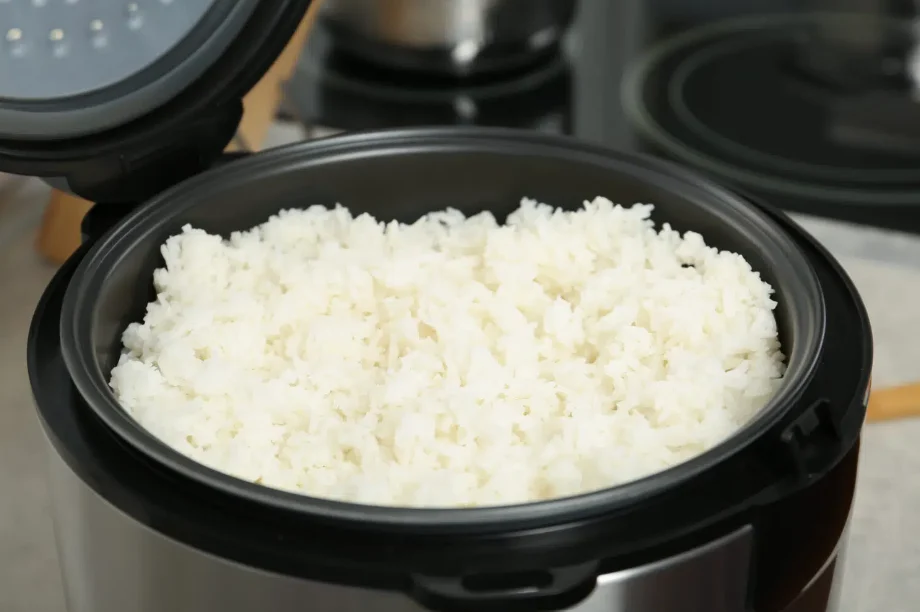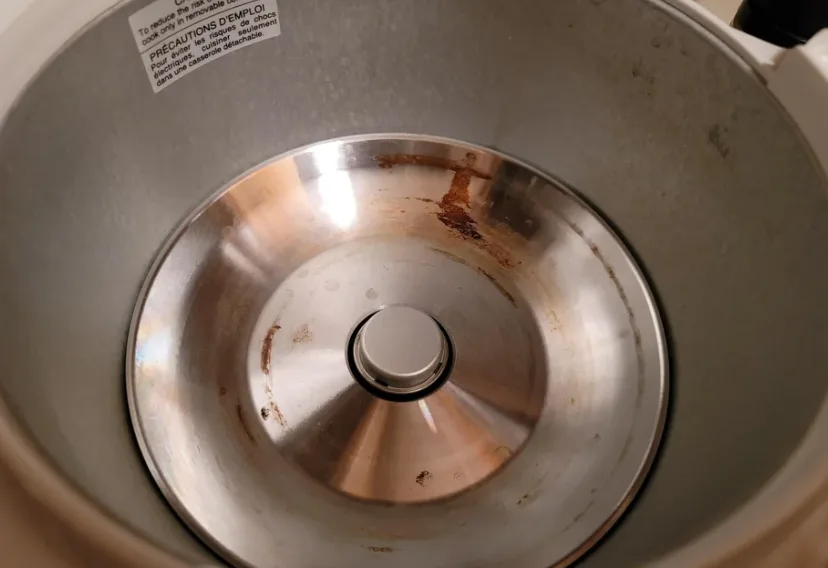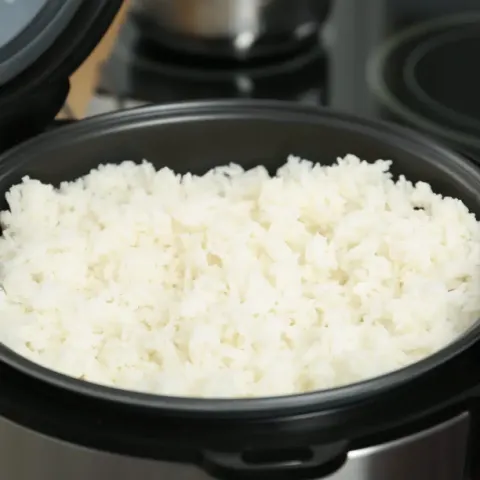A rice cooker is a simple but efficient gadget that can make rice cooking a breeze. And like any other electric gadget, it is bound to malfunction occasionally.
And while this may be a sign of more serious issues, in some cases, a simple solution will do. In this case, the issue is easier to resolve than you would think.
Reasons Why Your Rice Cooker is Making Popping Noises
Your rice cooker mostly makes a popping sound if water or pieces of food and debris are on its heating element.
This is because the heat from the heating element either evaporates the water or burns the pieces of food and debris.
Some other reasons your rice cooker may be making popping noises include excess water in the rice or poor ventilation in the rice cooker.
Water on the Heating Element
If your rice cooker is making popping noises, unplug the appliance immediately.
Most popping and sizzling noises are caused by moisture around the bowl and heating element. As you know, water and electricity do not mix.
Solution:
- Wait for the appliance to cool, then remove the bowl.
- Dry the inside of the rice cooker and wipe off any moisture from the outside of the bowl.
- Leave your rice cooker to dry out.
- You should turn the rice cooker upside down, open the lid, and leave the rice cooker to dry for 24 hours.
- Then test to see if the rice cooker is completely dry.
- Do this by using the cooker, as usual, to see if you can still hear the popping noises.
- You can also turn on the rice cooker without the bowl to see if you can still hear the popping noises.
- Do not leave it on for too long to avoid overheating the rice cooker.
- Ensure you do not touch the heating element as it will be extremely hot.
Note: Do not overfill the rice cooker. Refer to your user manual to see the recommended maximum capacity of your rice cooker. Overfilling the rice cooker will lead to the excess water overflowing and seeping between the bowl and the heating element.

Foreign objects or debris
foreign objects or debris accumulation on the heating element can also cause popping noises. The noise results from the heating element heating up the foreign objects or debris.

Solution:
- Inspect and clean the rice cooker.
- Remove the rice cooker bowl and use a damp cloth or sponge to wipe the inner pot and the heating element (if you can).
- Ensure you remove all the food residues or foreign objects that may have accumulated inside the cooker.
Note: Clean your rice cookerregularly to prevent the buildup of debris.
Inadequate ventilation
Insufficient ventilation within the rice cooker can lead to the buildup of pressure. As the steam tries to escape, it can cause the rice grains to explode, resulting in popping noises. This can happen if the steam vents or release valves are clogged or blocked.
Solution:
- Check the steam vents and release valves to ensure they are not clogged or blocked.
- Use a small brush or toothpick to remove any debris or residue obstructing the vents.
- Regular cleaning and maintenance of these components can help prevent this issue.
Excessive moisture in the rice
Another reason for the popping noises is the presence of excess moisture in the rice. As the water inside the rice cooker boils and turns into steam, the escaping steam can cause popping sounds.
Solution:
- Ensure you use the correct rice-to-water ratio specified by the manufacturer or a trusted recipe.
- Follow the manufacturer’s instructions or a trusted recipe for the appropriate rice-to-water ratio.
- Adjust the measurements accordingly to achieve the desired consistency of cooked rice depending on the cooked rice type.
Notes:
- If your rice cooker still makes popping noises, stop using the appliance and consider replacing the rice.
- If the issue persists or worsens, it may be necessary to contact the manufacturer or seek professional assistance.
Rice Cooker Maintenance Tips
Follow these maintenance tips to ensure your rice cooker’s safe and efficient operation. This will help prolong your appliance’s lifespan and minimize potential issues.
- Ensure your rice cooker is plugged into a suitable power source that meets the required voltage and wattage specifications. Avoid using extension cords or power outlets that are unreliable or incompatible.
- Place the rice cooker on a flat, stable, and heat-resistant surface. Avoid placing it near flammable materials, such as curtains or paper towels.
- Allow sufficient space around the cooker for proper ventilation and heat dissipation.
- Regularly clean your rice cooker to remove food residues and prevent debris buildup. Follow the manufacturer’s instructions for cleaning and maintenance.
- Regularly inspect your rice cooker’s power cord, plug, and other components for any signs of damage or wear if any part appears damaged or faulty, repair or replace them.

